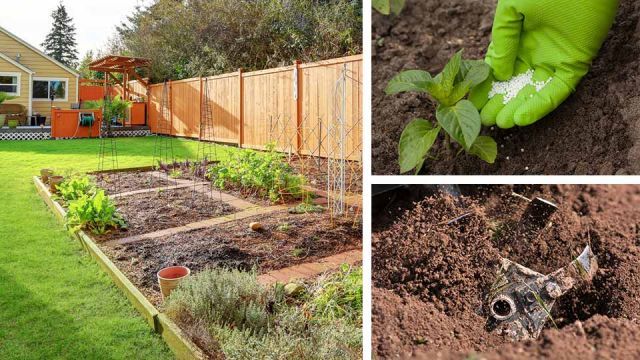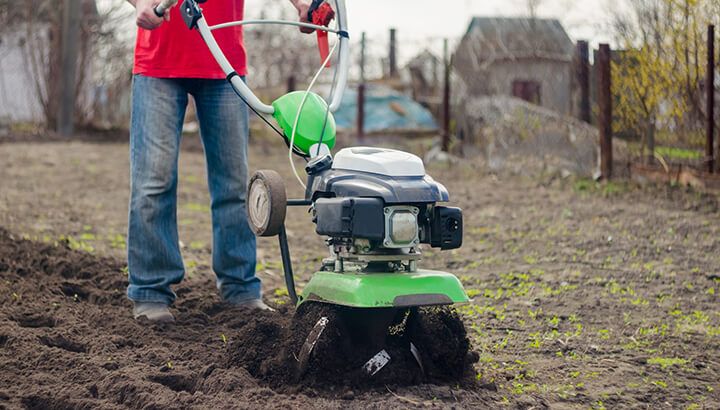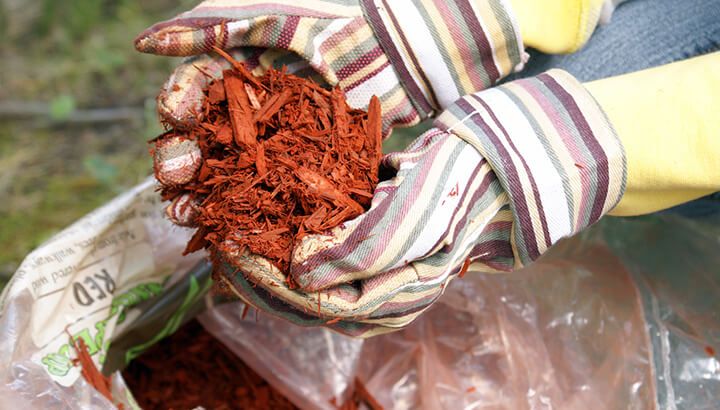
You’ve heard about the drain lawns are having on our national freshwater supplies (literally!), but have you ever wondered how much of a drag on the environment your garden is?
It’s a hard concept to swallow: for most of us, maintaining a thriving veggie patch or verdant flower bed is the very epitome of getting back to nature. Surely gardeners aren’t known for having a “green thumb” for nothing!
However, believe it or not, the way that you manage your garden can either drain or bolster the earth’s dwindling natural resources. So if you’re planning on playing your part and reducing your carbon footprint, there are certain warning signs you should look out for in your garden. Here are five reasons your garden isn’t sustainable.
1. You use synthetic fertilizers
It’s easy to pretend that the cheap fertilizers you buy at your local home improvement store don’t contain anything nasty; after all, they have such wonderful pictures of lush plants and healthy soil on the label! But the fact remains that, unless otherwise stated, most fertilizers and plant foods are composed almost entirely of chemicals that can build up in your soil, run off into the environment every time it rains or you water your garden… and get absorbed into the vegetables you’re about to eat!
So, unless you want to eat chemicals or poison your local waterways, it’s time to seek out some natural fertilizer alternatives. Luckily, they’re not hard to find! Horse or sheep manure from the farm down the road, banana skins, coffee grounds (preferably organic), egg shells, worm castings sitting right there on top of your lawn… the list goes on. Obviously, your best approach is to have a healthy, productive compost pile (more on that later). But if you don’t, then ask your local gardening store for a natural, non-synthetic fertilizer.
2. You till your garden

Newsflash: turning or tilling your soil isn’t actually good for your garden, or for nature! As gardeners, we spend years building up the perfect rich, dark loam within which to grow our most prized veggies and ornamental plants. Then, every winter, we rip out all our dead or dying annuals, leave the earth bare for months, then for some reason turn that soil end over end at the start of the next growing season.
People seem to think that this is a necessary process for aerating the soil and encouraging healthy plant growth, when in fact it completely reverses that healthy soil profile you’ve worked so hard to build. Tilling also exposes the soil to invasive weed species, and actually makes it harder for your seedlings to establish themselves.
Leave your soil be, and simply mulch dead or dying plants in situ to protect your soil!
Free Book: The Healing Garden: Growing Life-Saving Food For Ultimate Survival
3. You spray weeds with poison
This one should be a no-brainer for most organic gardeners, but it sadly isn’t all that obvious to many other enthusiastic green thumbers. Common synthetic weed killers like Roundup are thought to be non-harmful, when in fact they can bioaccumulate in the environment and exhibit toxic effects in mammals… including us humans!
Ditch the synthetic weed killers and pull the darn things out by hand. If this isn’t an option, reduce the amount of exposed soil you have in your garden, use a biodegradable ground cover like coir mats, or (as a last resort) ask your local gardening store for an organic weed spray formulation.
4. You don’t have a compost pile
It always surprises me to learn just how many gardeners don’t have a compost pile to supplement their garden. Composting is a wonderful way to reduce your carbon footprint by dramatically lowering your waste production (virtually all of your green waste can go in there), along with providing your garden with a major nutrient boost that negates the requirement for nasty synthetic fertilizers.
Yet, many gardeners seem to come up with excuses for why they don’t compost: not enough space, can’t be bothered dealing with pests that get attracted to the rotting food, don’t like the smell… none of these excuses really have any validity when it comes down to it. Even if you live in a high rise building and your garden consists of just a few pots, you can still have a small, efficient composting facility if you do your research. Pests or bad smells don’t need to be an issue if you have a fully enclosed compost with a smartly designed airflow system!
5. You don’t mulch

In today’s climate of ever-dwindling freshwater supplies, you’d think we’d be doing everything in our power to reduce water consumption at home. And yet, our gardens remain one of the biggest household water consumers.
Why? Because we’re not mulching! Mulch helps to retain water in your garden soil, meaning less irrigation is required on a day to day basis. Mulching also helps to moderate temperature and moisture fluctuations in your garden, keeps weeds out and provides a slow-release fertilizer function. Not bad for some rotting leaves!
— Liivi Hess
Free Book: The Healing Garden: Growing Life-Saving Food For Ultimate Survival

